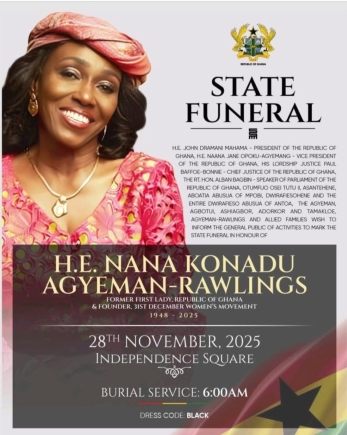A $14 million project to expand access to safe drinking water for vulnerable low-income and peri-urban communities in the northern part of the country has been launched.
The four-year project, titled "Water Access and Water Efficiency for Low-Income Areas in Ghana," will reach areas, including Wa in the Upper West Region and Bolgatanga in the Upper East Region.
The project, a joint initiative by the Embassy of Denmark and UNICEF, is worth 100 million Danish Krone (DKK 100 million), equivalent to $14 million.
It is expected to provide access to safe and reliable drinking water for more than 100,000 people, including 40,000 children.
The initiative, which will be implemented in collaboration with the Ghana Water Limited (GWL), aims to develop and roll out an effective and sustainable approach to delivering water services to underserved communities, including the establishment of a sustainable funding mechanism for identifiable low-income households.
Initiative
Speaking at the launch in Accra last Wednesday, the Ambassador of Denmark to Ghana, Jakob Linulf, described the initiative as “very efficient in design and a pioneering project”.
He added that the project would not only expand clean water delivery but also strengthen the long-term sustainability of Ghana’s water infrastructure.
Mr Linulf said Denmark was executing the project in close collaboration with the Netherlands, and hoped it would attract additional partners.
The Danish Ambassador highlighted Denmark’s long history of engagement in Ghana’s water sector, stressing that the partnership covered the entire value chain, from source protection to household.
The United Nations Children’s Fund (UNICEF) Representative in Ghana, Osama Makkawi Khogali, reaffirmed UNICEF’s commitment to work closely with Ghana and Denmark to continue improving access to water for all children.
He described Denmark as one of UNICEF’s closest and most trusted partners, adding that Denmark’s development strategy, built on human rights and democracy, aligned strongly with UNICEF’s mission to protect every child.
Commitment
The Minister of Works, Housing and Water Resources, Kenneth Gilbert Adjei, explained that the initiative supported the country’s broader national policies, including the National Water Policy, the Ghana WASH Sector Development Programme and the Big Push Agenda.
He added that improving the water sector was a continuous effort, hence the need for strong maintenance, transparency, efficiency and accountability from all partners.
On behalf of President John Dramani Mahama, he reaffirmed the country’s commitment to the partnership, adding that the programme was an important step towards ensuring that every Ghanaian had access to safe, reliable and affordable water.
The Managing Director of the GWL, Adam Mutawakilu, said “Denmark’s support stretches from early investments in both rural and urban systems, to non-revenue water reduction, to the COVID-19 WASH response in low-income areas.
Many of these investments are still providing safe and affordable water today”.
He said that although treatment plants in the Upper East and Upper West regions were built to meet demand up to 2024, they were currently operating far below capacity, at 38 per cent and 40 per cent utilisation, respectively.
Mr Mutawakilu, however, said low-income families living near existing networks continued to rely on unsafe or unreliable water sources, either because they could not afford the household connection fee or because the last-mile distribution infrastructure was lacking.


